|
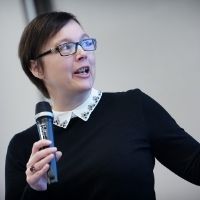
|
Caroline Bremner,
Head of Travel Research,
Euromonitor International
|
Caroline Bremner manages the global content strategy for the travel and tourism industry at Euromonitor International, which she joined in July 1996. Euromonitor International is a world leading market research company with over 40 years of experience.
As a global thought leader, Caroline engages with clients, trade bodies and research partners, working with Analysts across 100 countries to drive strategic insights. She has played an integral role in creating the most extensive travel and tourism intelligence system as used by leading destinations, governments and travel brands around the world.
Before joining Euromonitor, Caroline was a Tourist Guide in one of Edinburgh’s leading attractions. Caroline has a degree in French (MA (Hons), University of Edinburgh) and Postgraduate Diploma in European Marketing and Languages (PG Dip, Napier University, Edinburgh). Caroline received a Celebrating Her Global Award for Empowered Women in Tourism from ITB and the International Institute for Peace through Tourism in 2018.
|
|
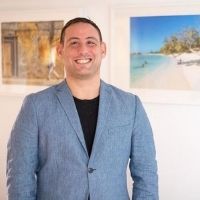
|
Jeremy Sampson,
CEO,
The Travel Foundation
|
With extensive experience in the tourism and sustainability arenas, Jeremy has worked with the public sector, SMEs, multinationals, and civil society. He spent five years as VP of Communications and Partnerships at Sustainable Travel International and another two years as President of international tour operator, GreenSpot Travel. He served as an Adjunct Professor at the George Washington University International Institute of Tourism Studies, teaching tourism promotion and marketing.
Immediately prior to joining The Travel Foundation, Jeremy worked at the IUCN Centre for Mediterranean Cooperation, where he designed and managed large-scale EU-funded transnational cooperation initiatives, such as DestiMED, and was instrumental in launching the MEET Network, a region-wide ecotourism network and destination management organization to promote ecotourism in protected areas across the Mediterranean. Other tourism promotion experience includes project management and advisory roles in Sub-Saharan Africa, Southern Europe and the Americas. Jeremy is a member of the GSTC working group for destination standards and indicators.
|
|
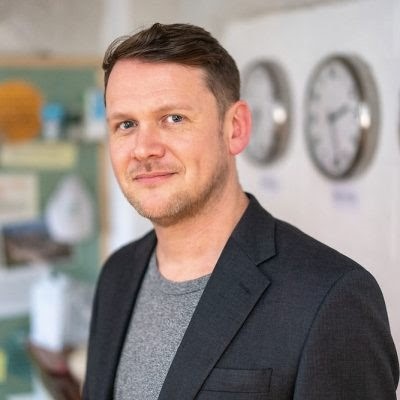
|
Graeme Jackson, Head of Strategic Partnerships, The Travel Foundation
|
Graeme is the Head of Partnerships for leading global tourism charity, the Travel Foundation. Based out of the Travel Foundation’s headquarters in Bristol, UK, he is responsible for developing and managing international partnerships with destinations, businesses, development agencies and donors to strengthen the organisation’s global work to improve the impacts of tourism on communities and the environment in destinations. A trained journalist, Graeme joined the Travel Foundation team in 2011 following a decade in the fields of Public Relations and marketing, where he represented and consulted for clients in the private, public and third-sector.
|
|

|
Izidora Marković Vukadin,
Science associate,
Institute for Tourism
|
Izidora Marković Vukadin is a science associate at Institute for tourism in Zagreb. She participated in number of European projects concerning sustainable tourism, as well as in a large number of master plans of tourism development in Croatia. Izidora is a head of Croatian sustainable tourism observatory. She has published 8 chapters in scientific books, 14 papers in scientific journals and proceedings and participated on more than 20 international conferences. Her research work is focused on sustainable tourism development and management, impacts of tourism on protected areas and identity.
|
|
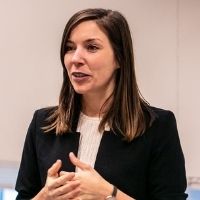
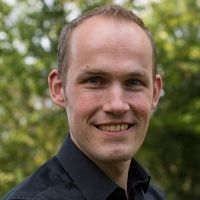
|
Bernadett Papp,
Researcher
&
Stefan Hartman, Head of department, European Tourism Futures Institute
|
As a researcher at the European Tourism Futures Institute, Bernadett focuses mostly on urban tourism development and related challenges. She is also involved in education as a lecturer and module coordinator in the tourism management bachelor and master programs of NHL Stenden University of Applied Sciences (Leeuwarden, The Netherlands). Bernadett is active in the field of scenario planning and strategic foresight. She is responsible for an elective course in scenario planning in the MSc Strategic Event and Tourism Management program at Skema Business School in Nice, France. In the past years Bernadett worked with various multilateral organisations and worked as a project specialist (expert contract) in the Tourism Market Intelligence and Competitiveness department of the United Nations World Tourism Organization (UNWTO) in Madrid, Spain. She is currently a PhD candidate at the University of Glasgow, Scotland.
Dr. Stefan Hartman holds the position of head of department of the European Tourism Futures Institute (ETFI) at NHL Stenden University and Assistant Professor at the University of Groningen. Stefan obtained his PhD at the University of Groningen on the development, strategic (spatial) planning and governance issues related to landscapes that are in the process of becoming destinations for tourism and leisure. At the ETFI he helps a wide variety of actors related to the leisure and tourism industry to develop strategies and actions that allow them to manage continually changing circumstances. To do so, he uses his knowledge of transition management, resilience and adaptive capacity building.
|